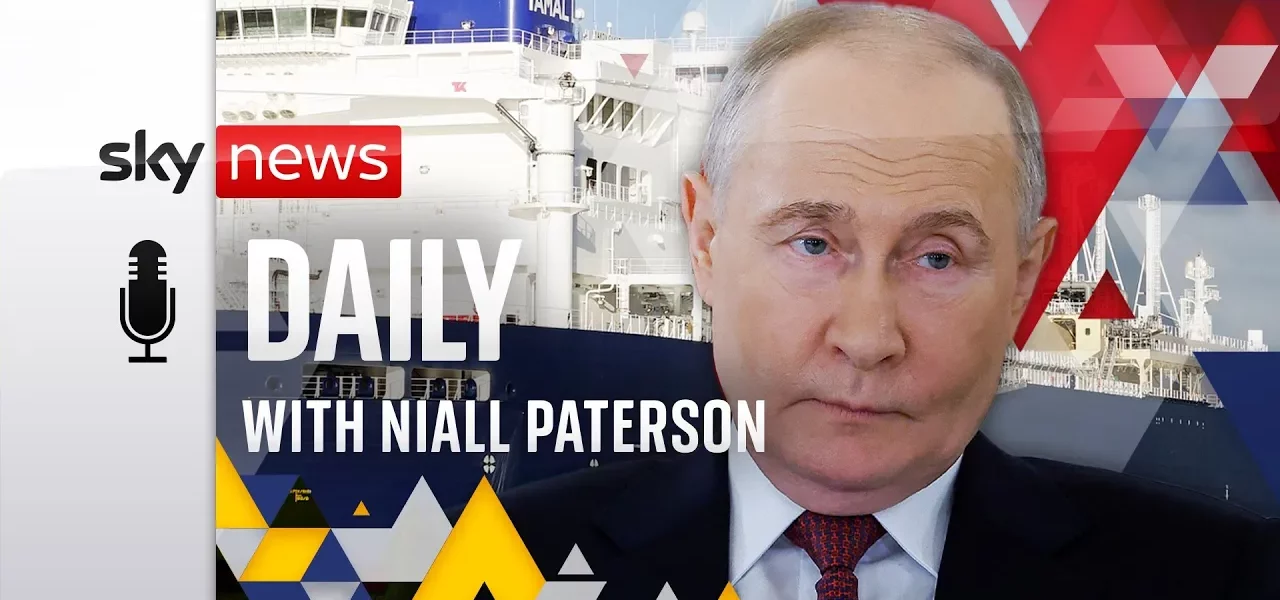Europe’s Ongoing Dependence on Russian Liquefied Natural Gas

This article delves into the complex dynamics of Europe’s energy dependence on Russian liquefied natural gas (LNG), exploring the recent findings of a Sky News investigation, the implications for the Ukraine conflict, and the existing loopholes in sanctions that allow this situation to persist.
Introduction
The geopolitical landscape in Europe has dramatically shifted since the onset of the war in Ukraine. Despite promises from leaders across the continent to reduce reliance on Russian fossil fuels, the reality paints a different picture. Recent investigations reveal that Europe continues to import significant quantities of liquefied natural gas (LNG) from Russia, undermining the sanctions imposed and raising critical questions about energy security and political integrity.
The Current State of European Gas Imports
As of now, Europe remains heavily reliant on Russian LNG despite the ongoing conflict in Ukraine. This section provides an overview of the current state of gas imports and highlights the extent of this reliance.
Statistics on Gas Imports
- Before the war, approximately 34% of Europe’s gas came from Russia.
- Post-conflict, this figure has decreased to about 15%, but the imports remain substantial.
- Countries like Spain have become significant recipients of Russian gas, receiving large shipments that contribute to the overall European imports.
The Role of LNG Tankers
LNG tankers have become a vital component in transporting gas from Russia to Europe. These specialized vessels can navigate extreme conditions, including icy waters, highlighting an engineering feat that facilitates ongoing imports.
Loopholes in Sanctions
Despite the imposition of sanctions, investigations have revealed that major loopholes exist, allowing Russian LNG to flow into Europe. This section explores these loopholes and their implications.
How Sanctions Are Circumvented
Current sanctions do not adequately cover LNG tankers, allowing UK-based insurance companies to facilitate the transfer of Russian gas. This has raised concerns about the effectiveness of the sanctions and the moral implications of such business practices.
The Role of British Companies
British firms are reportedly involved in insuring LNG tankers that transport gas from Russia to Europe. This has led to significant revenue streams for Russia, which then fund military operations in Ukraine.
Political Implications
Political leaders have faced immense pressure to address the ongoing energy dependence. However, the complexity of energy needs, particularly for countries like Germany, complicates the situation. The following points illustrate the challenges:
- Germany’s resistance to completely sanctioning Russian LNG due to potential economic ramifications.
- The need for alternative sources of energy, which are not yet sufficiently developed to replace Russian gas.
- Public sentiment in Europe regarding the costs of living crisis, which is influenced by energy prices.
Consequences of Continued Dependence
The implications of Europe’s ongoing reliance on Russian LNG extend beyond economics; they significantly impact the geopolitical landscape and the war in Ukraine.
Financial Support for the War
Every euro spent on Russian gas supports the Kremlin’s military efforts in Ukraine. The financial flow from Europe to Russia is a critical aspect of the ongoing conflict, and the following statistics underline this point:
- Over €10 billion has reportedly been spent on Russian LNG since the war began.
- The ongoing support enables Russia to fund its military operations, prolonging the conflict.
- Calls for greater sanctions have intensified, but political will remains fractured across Europe.
The Energy Crisis and Public Perception
The European public is increasingly aware of the complexities surrounding energy imports. There is growing frustration over the perceived failure of governments to mitigate the impact of Russian energy dependence on domestic costs.
Conclusion
Europe’s reliance on Russian liquefied natural gas presents a multifaceted challenge that intertwines economic, political, and ethical considerations. The ongoing loopholes in sanctions complicate efforts to reduce this dependence, and the ramifications for the war in Ukraine are profound. As the situation evolves, it is crucial for European leaders to address these issues head-on and seek sustainable energy alternatives to ensure both energy security and support for Ukraine. It is time for action—both from governments and from the public. To learn more about energy policy and its implications, check out our related articles on energy independence and the European energy crisis.
“`




